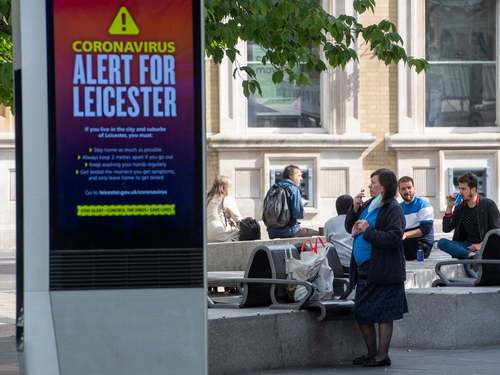The study, conducted by leading heart failure charity the Pumping Marvellous Foundation, found men said they waited an average of just over three and a half weeks to get a formal diagnosis after their first GP visit, but women waited just over 20 weeks instead.
Women are forced to wait more than five times longer than men for a heart failure diagnosis, a new study has found.
Researchers discovered women are 96 per cent more likely to get an incorrect diagnosis of heart failure than men – attributing sharp disparities to such problems being wrongly viewed as “a man’s disease”.
Researchers warned such delays were linked to “poorer quality of life, financial losses, mental health issues and avoidable deaths” – adding that health professionals do not give heart failure the same attention and gravity as cancer and other diseases.
Sarah, who is from Hull, went to her GP multiple times during the course of 10 months before finally being diagnosed with heart failure.
Prior to receiving the diagnosis, she was wrongly diagnosed with rheumatological concerns in spite of the fact her father had a heart condition and she herself suffered from Type 1 diabetes, which is a common comorbidity.
“My GP never mentioned that they thought I might have heart failure,” Sarah, who was diagnosed at the age of 42, said. “In fact, one of them actually said, your symptoms are probably not to do with your heart because you’re young and you’re female. Even though my father had a heart condition and even though I’ve been Type 1 diabetic for 40 years, it was never considered.”

Early, accurate diagnosis of heart failure is vital to curbing long-term complications and ultimately stopping early deaths, researchers said.
Some 45 per cent of the women polled were wrongly diagnosed with another condition before getting their heart failure diagnosis, in comparison to 23 per cent of men.
The study, which examines patient survey findings and NHS statistics, found late diagnosis has a “physical, emotional and socioeconomic” effect, as well as being a huge financial burden on the NHS.
Some 18 per cent who were admitted to hospital for heart failure died within just six months in 2018/19 – with hospital visits costing almost £400m.
Researchers found almost two thirds of patients said their symptoms had worsened during the coronavirus crisis, while over two thirds had appointments cancelled and a fifth found it difficult to collect medication.
Professor Martin Cowie, Professor of Cardiology at Imperial College London, said: “There is a striking gender gap in the speed and accuracy of the diagnosis for women compared with men. Too often heart problems are seen as a man’s disease – and are not even considered in a woman. This needs to change.
“Thankfully, we have simple blood tests that can help point doctors in the right direction – with good evidence that this speeds up the time from symptoms first developing to an accurate diagnosis and the start of life-saving therapy. We have these tools – and we must start using them properly right across the country.”
The most common misdiagnoses among women were asthma, anxiety or depression and acid reflux, researchers found.
Nick Hartshorne-Evans, chief executive of the Pumping Marvellous Foundation, said: “Early diagnosis of heart failure can be the difference between life and death. Yet patients are facing a battle to get a timely diagnosis. This report highlights the hidden victims of heart failure and reveals the stark inequalities that women in particular are facing, with symptoms failing to be spotted, drastically impacting quality of life and resulting in unacceptable survival rates.
“With Covid-19, the situation is only going to become worse, with an increasing backlog and strained services. Delays to diagnosis mean delays to treatment and pressing pause on the life that people living with heart failure can have and, importantly, deserve.”
A previous US study found women suffering from heart attacks have their odds of death drastically reduced if they are treated by female doctors.



